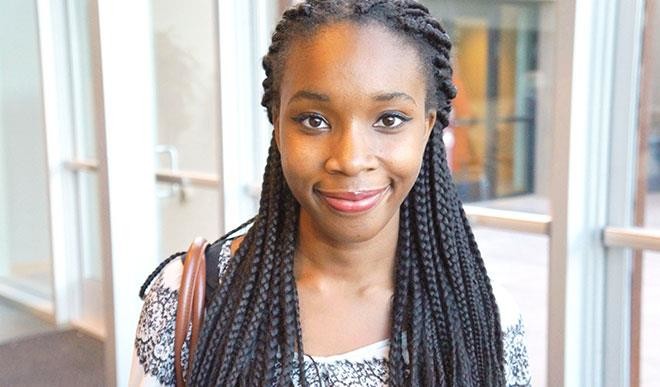‘Writing is a kind of discovery’
Nneoma Ike-Njoku is a US-based Nigerian writer who recently won the Awele Creative Trust Prize for emerging writers, for her short story ‘The Burial.’ The Lagos-born writer fell in love with books in her father’s massive personal library. In the following interview, she speaks on her writing and what winning the prize means. Bookshelf: What […]


Nneoma Ike-Njoku is a US-based Nigerian writer who recently won the Awele Creative Trust Prize for emerging writers, for her short story ‘The Burial.’ The Lagos-born writer fell in love with books in her father’s massive personal library. In the following interview, she speaks on her writing and what winning the prize means.
Bookshelf: What does being a writer mean to you?
Nneoma Ike-Njoku: I think writing is talking about something and just really hoping it connects with someone, that they [the readers] somehow get what you’re trying to say. I know it sounds trite, but sometimes you don’t even know what it is you’re trying to say when you start a story and then the writing is trying to figure that out. I send a lot of my early drafts to my elder brother, Dee Dirichi, and sometimes he sees something that wasn’t even on my mind when I was writing. Or I start a story thinking I know where it’s going to end and it turns out completely different from what I thought. So, maybe in that sense writing is a kind of discovering.
Bookshelf: You have just been announced winner of the Awele Creative Trust award. What is the significance of winning this prize for you?
Ike-Njoku: I’m just really grateful and honoured. I appreciate the work of the Awele Creative Trust (ACT) in continuing to support young Nigerian writers, not only with the prize money, but also with encouragement and mentorship by the ACT organisation. I am also thankful to the creative director of the ACT board, Chika Unigwe, for using her platform to advance literature by young Nigerians.
Bookshelf: What can you tell readers about your winning story, ‘The Burial’?
Ike-Njoku: ‘The Burial’ is about a man trying to find money to bury his father. It is also about the ‘victimless crime’ of the underground organ trade in Nigeria and other parts of West Africa.
Bookshelf: Why did you decide to write this story?
Ike-Njoku: I think it was a combination of things. Sometime last year, I saw something in the news about how more and more people were choosing to sell their organs, and for so many different reasons. Before I wrote the story, I was thinking a lot about the underground organ trade and reading what I could find about it, but not in the sense of wanting to write a story about it. It was just my obsession for a while. So when the idea for the story came, it was almost like I had done the background research before hand, and it kind of grew from that.
Bookshelf: That is interesting. As a young writer, what kinds of stories have caught your fancy and how have these helped in shaping your voice?
Ike-Njoku: I love short stories by Joyce Carol Oates. I love the way she uses structure in her stories. I also really enjoy stories by Chimamanda Adichie and the emotional honesty she gives to her characters. Lately, I’ve been very inspired in very different ways by the works of Cyprian Ekwensi, Helen Oyeyemi, and Lesley Nneka Arimah.
Bookshelf: At what point in your life did you realise you wanted to be a writer?
Ike-Njoku: I think around primary two or three, I started to write really bad poetry, really awful, but my dad used to act like they were the best thing. He kept all of my poems. He’d make me read them out loud and tell people that I would be a writer one day. The poetry thing didn’t quite work out (laughs) but I’m still writing.
Bookshelf: Fathers always do that. So now after winning this prize, where do you see yourself going from here?
Ike-Njoku: I hope to continue to write. It’s very encouraging to be recognised for what you love to do and I hope to continue to work on my writing and on improving my craft as a writer.
